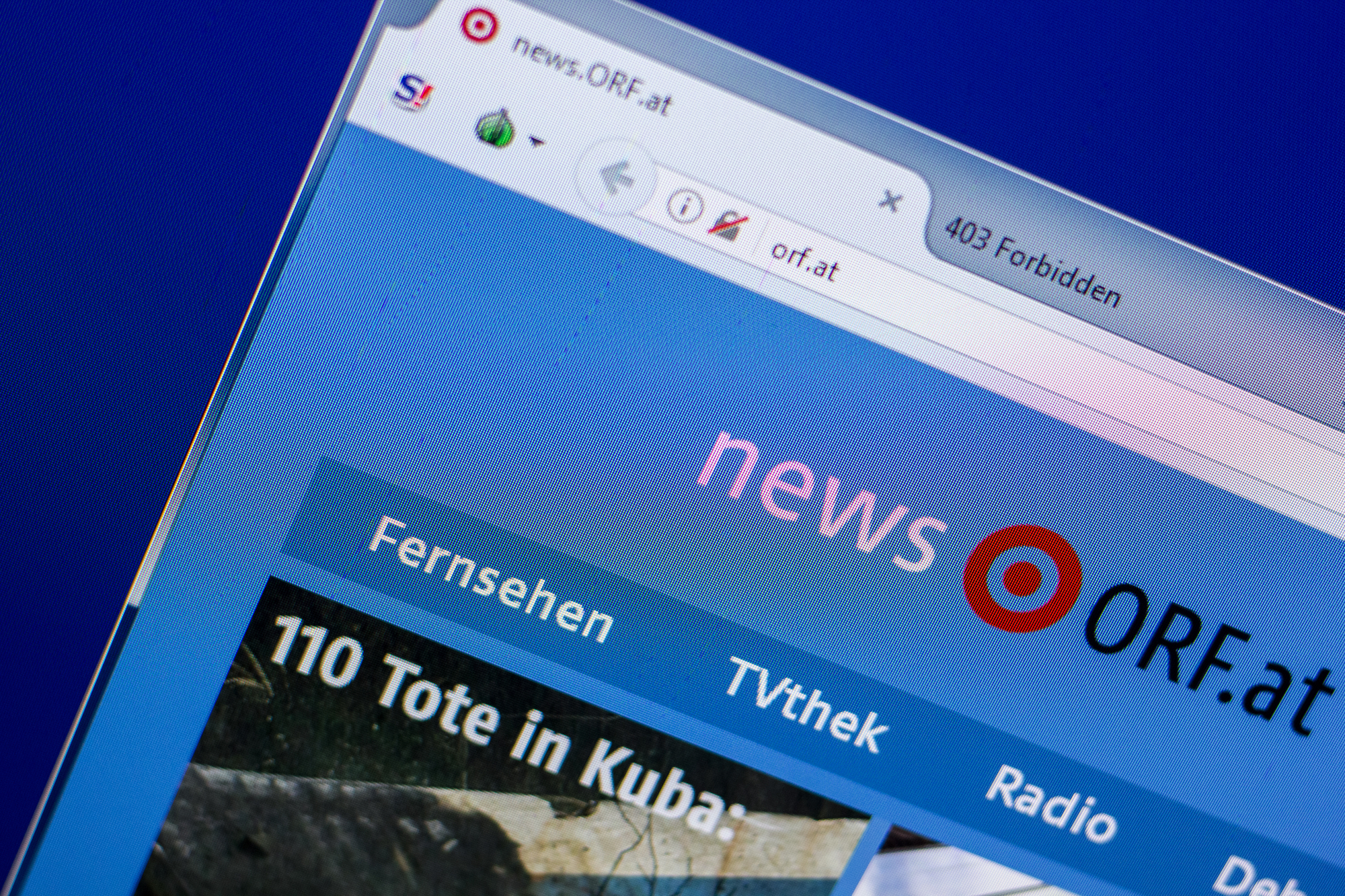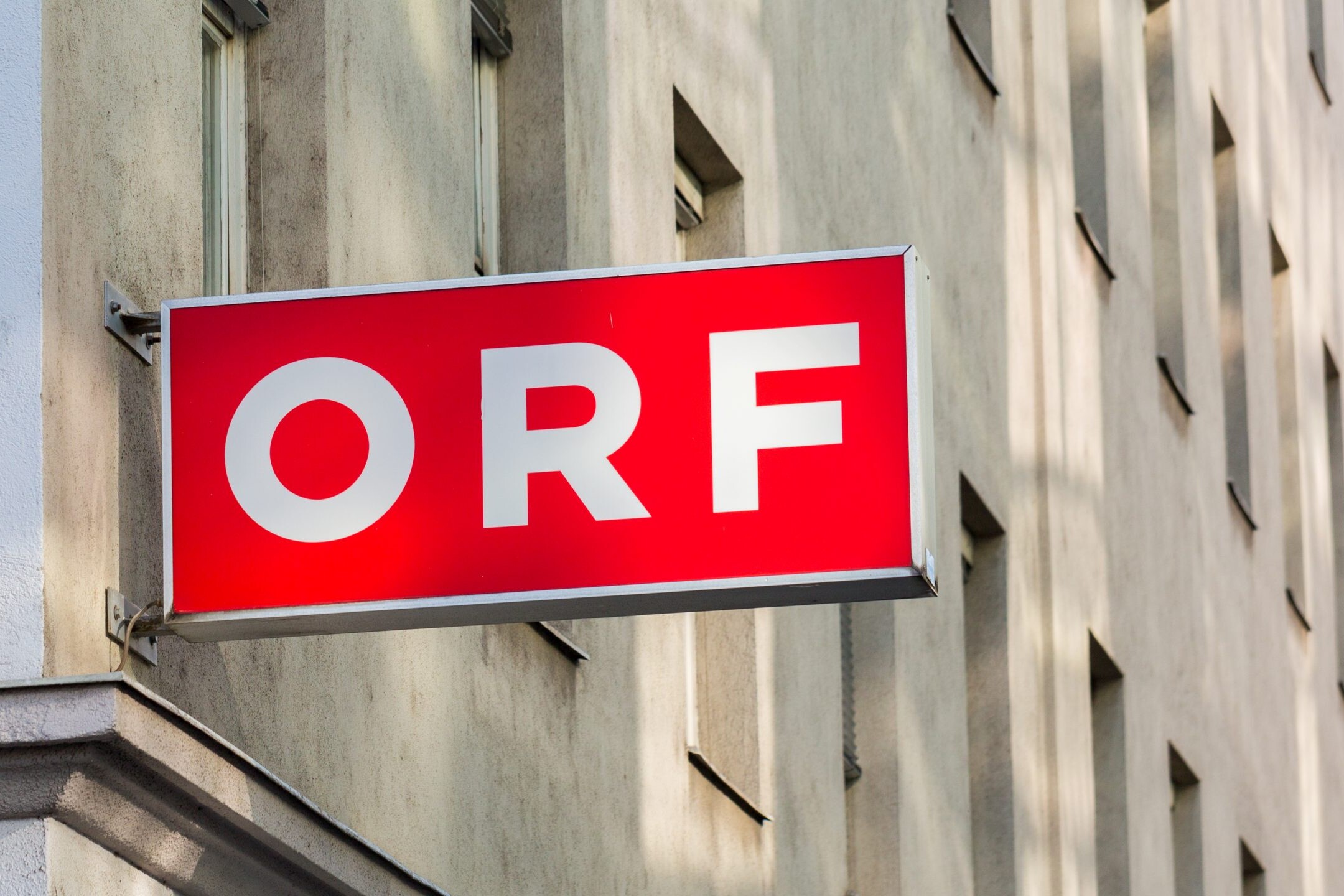ORF: Law amendment sees digital focus
15th June 2023
The amendment is designed to set up ORF for the digital age, but it has faced criticism from private media, who see it as a threat.

The Council of Ministers has approved the amendment to the ORF law, meaning the bill has now been tabled in the National Council. The parliamentary process could be concluded before the summer break.
“Hardly any media law has recently caused as much excitement as the planned ORF law amendment,” Der Standard reported recently, in their summary of proposed legislation, which would carry significant ramifications for Austria’s public service broadcaster.
The amendments are designed to “adapt the public service mandate to the digital age”. Crucially in this move, the broadcaster can now publish content both online-only and online-first, rather than having to go through a linear broadcast. Programmes uploaded onto ORF’s streaming service will be allowed to stay online for longer than the current seven-day timeline.
One of the other significant alterations will be in the way that Österreichischer Rundfunk (ORF) is funded, as PMA has previously reported. As things currently stand, the reforms would mean ORF changes its funding from a licence fee model – via the device-dependent GIS – to a household levy.
Private vs public
As the amendment progressed, the debate has been particularly focussed on the size of ORF, and whether it leaves enough space for private Austrian media to flourish.
The industry has been vociferously defending its position, and in a show of unity, all major Austrian newspapers – including Der Standard, Die Presse, and Wiener Zeitung – published blank front pages as a protest in May.
They published a letter in conjunction with this statement, collectively signed by board members and managing directors of the newspapers. “With the planned amendment to the ORF law, Austria’s largest media company, the ORF, will receive additional public funds and significantly more opportunities to expand its activities and offers in the digital space,” they wrote. “It’s good for ORF. And bad for media diversity.”
Key aspects of the legislation:
- A household levy will see the charge decrease from €18.59 to €15.30 per month. But all households will have to pay (except for those with exemptions), meaning an extra 100,000 households will now be contributing.
- Businesses will also have to pay, although this will be scaled. The ORF contribution must be paid for every 50 employees – so 50 employees, only one contribution, 100 employees, two contributions etc.
- at will have to feature 70% moving pictures, and 30% text. The number of text contributions will be limited to 350 maximum.
- Stricter restrictions on ORF’s advertising
“This is a major obstacle to the digital transformation of private media of publisher origin.” – Markus Mair, President of the VÖZ
The major change as a result of the lobbying from the private media organisations was to place limits on ORF’s ability to publish text-only content. Only 30 percent of its online content will be text, with audiovisual content constituting the remaining 70 percent.
However, this was still not as restrictive as the private media sector wanted. The Association of Austrian Private Broadcasters (VÖP) pushed for a maximum of 350 reports – regardless of whether they were audiovisual or text – every week. Meanwhile, the President of the VÖZ, Markus Mair, who represents the newspaper sector, described it as a “short-sighted decision with serious consequences for the private media market.”
“As long as an online news portal provides a product that is de facto a daily newspaper but is supposedly accessible ‘free’, this is a major obstacle to the digital transformation of private media of publisher origin.”
Listen toour podcast
Uncovering and exploring the biggest
issues facing public media
Digital focus for ORF
The law provides the opportunity for ORF to become a more predominantly digital broadcaster, and it is evident this is a necessary step for public service media to take. As audiences shift online, public service media needs to increasingly accessible in this space. The importance of this has already been recognised by other public media, such as the BBC, ABC, France Télévisions, who are all moving towards “digital first”.
But in some countries, such as in Estonia and Finland, where this move has been made, there has been a significant riposte from the private media sector, who feel threatened by the scale and size of public service media and who see the move online as a direct attack on their own audiences, and subsequently, their advertising model. In Finland, the parliament passed an amendment last year imposing restrictions on the online content for Yle. This precedent has seen other private media lobby groups attempt the same thing.
Undoubtedly, private media is under enormous financial pressure. But this is more because advertising revenues are now dominated by big tech. As the ORF board member, Heinz Lederer said, ORF is the “wrong opponent”. Yet this narrative continues to play out across many different countries.
Audiences need strong public service media which provide accessible content. In the digital age, that means public service media need to increasingly have an online-first approach. The Public Media Alliance has concerns that as a result of limiting the online presence of a public media outfit, there could be repercussions for its reach and relevance.
Related Posts
11th March 2022
Finland: Law amendment imposes restrictions on Yle textual content
The Finnish Parliament has approved an…
30th November 2021
ORF: New leadership, a licence fee increase, and independence concerns
A new Director-General will lead ORF…



